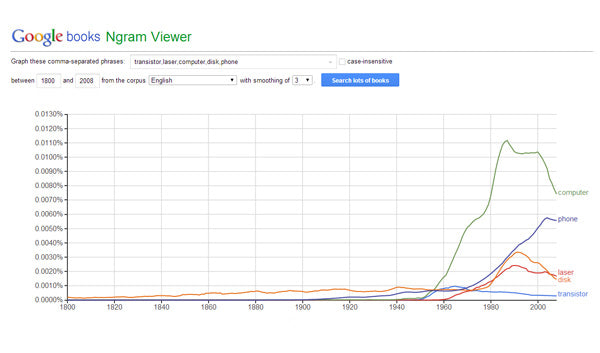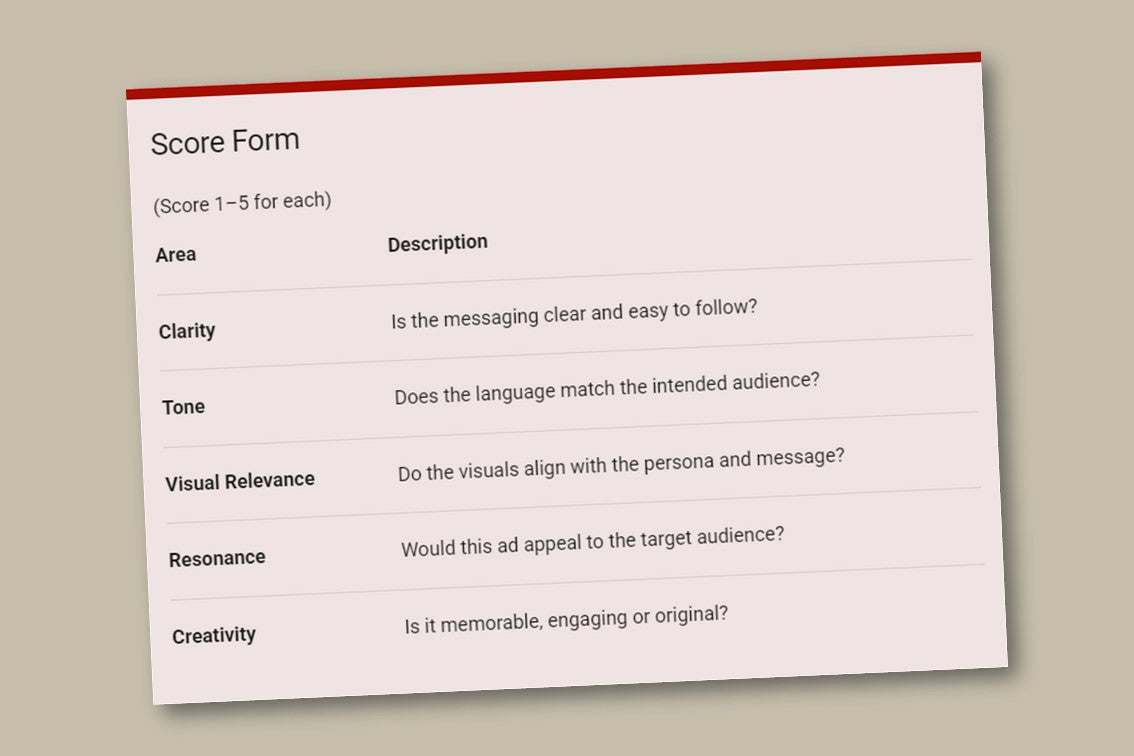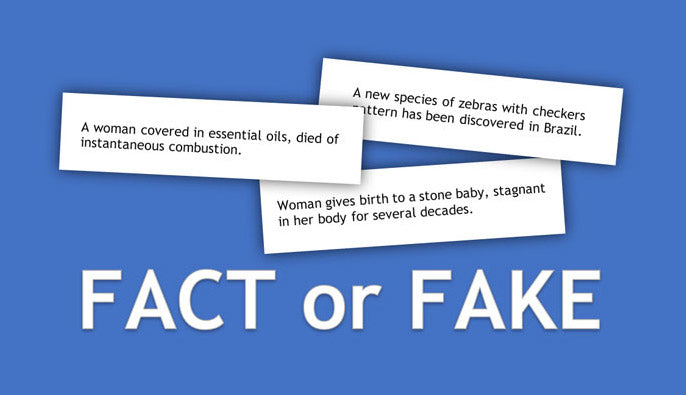Purpose
Modern tools can provide a great insight on how certain terms have been used in the past. With the advent of search engines and in particular the ever more useful tools released by Google we can examine the index of millions of books and observe the popularity of certain terms in literature.
This exercise is meant to be an exploratory activity where delegates sit behind computers and use the tool to test out the use of various terms. The tool is known as Google Books Ngram Viewer which is the result of indexing thousands of books.
Initially, you will give delegates specific terms to research and later you can let them use the tool freely to see what insights they can come up with.
This exercise is useful for courses on marketing, branding, writing, languages and art.
Objective
Use the Ngram tool to compare the use of various terms in literature over the past 200 years.
What You Need
- Access to computers and internet for each pair of delegates. They can also use tablets or phones for this exercise so long as they don’t get distracted and can print from them.
- Access to a printer
Setup
- Divide the delegates to pairs. If you have an odd number of delegates use a group of 3.
- Provide access to computers for each pair.
- Explain that they will be using a tool known as Google Books Ngram Viewer.
- Ask them to go to the following link:
- The graph shows the use of words, “Albert Einstein”, “Isaac Asimov” and “Tolkien” in literature since 1800.
- Let them study the graphs to understand what the tool does and the significance of the data.
- Now ask delegates to try the following words representing the 6 fundamental emotions.
- Encourage pairs to discuss the results and what it suggests.
- Now, ask the groups to think of a series of related terms and use the tool to compare the use over time.
- They should aim to produce 5 interesting sets that they can present to others. An interesting set of words is one that leads to a story or a surprising insight about their use over time. As an example, they can compare brands, personal brands, coining of modern words (such as “robot”) and so on.
- Ask groups to print the results of their 5 chosen sets of words.
- Allocate 15 minutes for this part.
- Bring everyone back together.
- Ask a volunteer group to share the results for one of their sets with other delegates and explain why they thought their set was interesting.
- Encourage others to discuss the set.
- Ask another group to present another set and follow with a discussion.
- Continue until all groups have presented at least one set.
- Continue for another 2 rounds until each group has discussed 3 of their 5 sets. Optionally, if you have time you can go through the whole 5 sets.
- Follow with a general discussion.
Timing
Explaining the Exercise: 5 minutes
Activity: 5 min initial use of the tool + 15 min researching the 5 sets + (2 min * 3 sets * N groups) sharing and discussing the sets = 44 minutes for 4 groups
Group Feedback: 10 minutes
Discussion
What were the most surprising results? What are the most interesting uses of this tool in regard with marketing, branding or your specific job? In what ways can you benefit from the use of this tool?
Variations
Optionally you can also go through a number of advance uses for this tool such as searching for specific uses of term like verbs or inflection. More information can be found here.
Soft Skills Training Materials
Get downloadable training materials
Online Train the Trainer Course:
Core Skills
Learn How to Become the Best Trainer in Your Field
All Tags
Training Resources for You

Course Design Strategy
Available as paperback and ebook

Free Training Resources
Download a free comprehensive training package including training guidelines, soft skills training activities, assessment forms and useful training resources that you can use to enhance your courses.

Our Comprehensive Guide to Body Language

Train the Trainer Resources
Get Insights - Read Guides and Books - Attend Courses
Training Materials
Get downloadable training materials on: Management Training, Personal Development, Interpersonal Development, Human Resources, and Sales & Marketing














Leave a comment
All comments are moderated before being published.
This site is protected by hCaptcha and the hCaptcha Privacy Policy and Terms of Service apply.